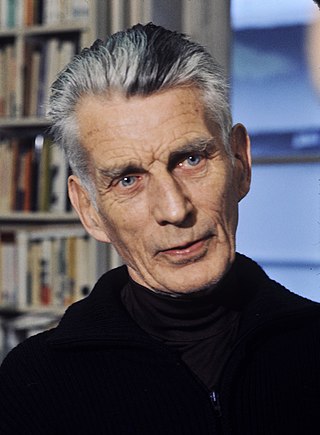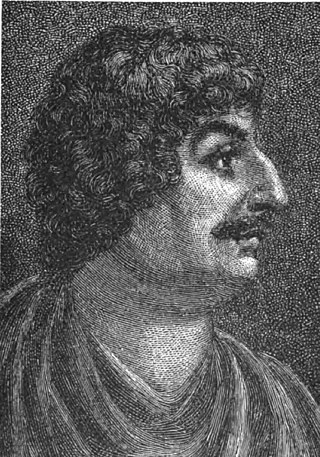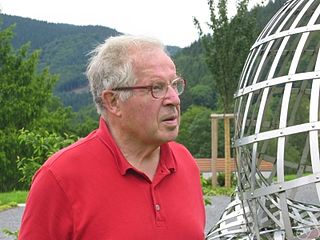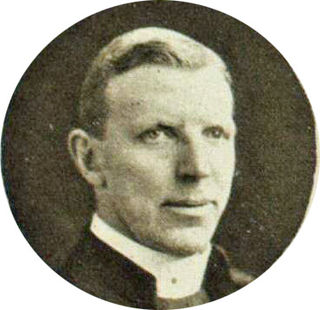Experimental Theatre in Oxford
| | This section is empty. You can help by adding to it. (January 2021) |
Francis Robert Le Plastrier Warner (21 October 1937 - 7 December 2021) was an English poet, playwright, musician, and scholar. Warner received early notice for his lyrical poetry but focused most of his later literary career on Agora, a cycle of plays that explore the development of Western culture up to the late Twentieth Century. An Emeritus Fellow of St. Peter's College, Oxford, and Honorary Fellow of St. Catharine's College, Cambridge, [1] Warner was also a noted advocate for experimental theatre, leading attempts during the 1960s and 1970s to establish a Samuel Beckett Theatre for avant garde theatre production in Oxford. [2] [3]
Francis Warner was born in Bishopthorpe, Yorkshire, England, [4] to Reverend Hugh Compton Warner and Nancy Le Plastrier Owen. [5] After serving as vicar of Bishopthorpe from 1932-1938, [6] Rev Warner became vicar of St Martin of Tours in Epsom in 1938, [7] an incumbency he held until his resignation in 1950 to become education secretary of the Church of England Moral Welfare Council. [8] Rev Warner and his family lived in The Old Vicarage, Epsom, throughout World War II, [8] an experience recalled later by Francis in the collection Beauty for Ashes: Selected Prose and Related Documents [1] and the text of David Goode's Blitz Requiem. [9] The elder Warner, who had become an honorary canon of Guildford Cathedral in 1948, died in London, age 51, after a long illness, on 1 July 1956. [8]
Francis was educated at Christ's Hospital, London College of Music, and St Catharine's College, Cambridge. Whilst at Cambridge, Warner was C.S. Lewis's last graduate student. [10]
Francis spent much of his academic career at St Peter's College, Oxford, where he was Lord White Fellow, and Tutor in English Literature from 1965–99. [11] After retirement, he was elected Honorary Fellow of St Catharine's College, Cambridge, and Emeritus Fellow of St Peter's College, Oxford. [12]
| | This section is empty. You can help by adding to it. (January 2021) |
Warner produced several volumes of lyrical poetry early in his career and was honoured for his poetry as the recipient of the Messing Award (now known as the St. Louis Literary Award) in 1972 by the St. Louis University Library Associates. Warner began writing plays in the early 1970s, creating a body of theatrical work that would later be styled as the dramatic play cycle Agora. In addition to the plays in Agora, Warner continued writing poetry, publishing several volumes throughout his later literary years.
The dramatic cycle Agora encompasses the entirety of Warner's literary output as a dramatist. Consisting of 16 individual plays, loosely following a chronological order of action, Agora tracks the development of Western culture from ancient Greece to the present.
| Title | Publication Year | Grouping |
|---|---|---|
| Healing Nature — The Athens of Pericles | 1988 | none |
| Virgil and Caesar | 1993 | Roman Trilogy |
| Moving Reflections | 1983 | Roman Trilogy |
| Light Shadows | 1980 | Roman Trilogy |
| Byzantium | 1990 | none |
| Living Creation — Medici Florence | 1985 | Europa Tetralogy |
| King Francis I | 1995 | Europa Tetralogy |
| Goethe's Weimar | 1997 | Europa Tetralogy |
| Rembrandt's Mirror | 2000 | Europa Tetralogy |
| A Conception of Love | 1978 | none |
| Emblems | 1972 | Maquettes for the Requiem |
| Troat | 1972 | Maquettes for the Requiem |
| Lumen | 1972 | Maquettes for the Requiem |
| Lying Figures | 1972 | Requiem Trilogy |
| Killing Time | 1976 | Requiem Trilogy |
| Meeting Ends | 1974 | Requiem Trilogy |

Samuel Barclay Beckett was an Irish novelist, dramatist, short story writer, theatre director, poet, and literary translator. His literary and theatrical work features bleak, impersonal and tragicomic experiences of life, often coupled with black comedy and nonsense. His work became increasingly minimalist as his career progressed, involving more aesthetic and linguistic experimentation, with techniques of stream of consciousness repetition and self-reference. He is considered one of the last modernist writers, and one of the key figures in what Martin Esslin called the Theatre of the Absurd.

Epsom is a town in the Borough of Epsom and Ewell in Surrey, England, about 14 miles south of central London. The town is first recorded as Ebesham in the 10th century and its name probably derives from that of a Saxon landowner. The earliest evidence of human activity is from the mid-Bronze Age, but the modern settlement probably grew up in the area surrounding St Martin's Church in the 6th or 7th centuries and the street pattern is thought to have become established in the Middle Ages. Today the High Street is dominated by the clock tower, which was erected in 1847–8.

Robert Herrick was a 17th-century English lyric poet and Anglican cleric. He is best known for Hesperides, a book of poems. This includes the carpe diem poem "To the Virgins, to Make Much of Time", with the first line "Gather ye rosebuds while ye may".

St Catharine's College is a constituent college of the University of Cambridge. Founded in 1473 as Katharine Hall, it adopted its current name in 1860. The college is nicknamed "Catz". The college is located in the historic city-centre of Cambridge, and lies just south of King's College and across the street from Corpus Christi College. The college is notable for its open court that faces towards Trumpington Street.

Sir David Valentine Willcocks, was a British choral conductor, organist, composer and music administrator. He was particularly well known for his association with the Choir of King's College, Cambridge, which he directed from 1957 to 1974, making frequent broadcasts and recordings. Several of the descants and carol arrangements he wrote for the annual service of Nine Lessons and Carols were published in the series of books Carols for Choirs which he edited along with Reginald Jacques and John Rutter. He was also director of the Royal College of Music in London.

The Ascension Parish Burial Ground, formerly known as the burial ground for the parish of St Giles and St Peter's, is a cemetery off Huntingdon Road in Cambridge, England. Many notable University of Cambridge academics are buried there, including three Nobel Prize winners.

Sir Henry Peter Francis Swinnerton-Dyer, 16th Baronet, was an English mathematician specialising in number theory at the University of Cambridge. As a mathematician he was best known for his part in the Birch and Swinnerton-Dyer conjecture relating algebraic properties of elliptic curves to special values of L-functions, which was developed with Bryan Birch during the first half of the 1960s with the help of machine computation, and for his work on the Titan operating system.

Sir Andrew Jonathan Bate, CBE, FBA, FRSL, is a British academic, biographer, critic, broadcaster, scholar, and occasional novelist, playwright and poet. He specializes in Shakespeare, Romanticism and Ecocriticism. He is Foundation Professor of Environmental Humanities in a joint appointment of the College of Liberal Arts, the School of Sustainability and the Global Futures Laboratory at Arizona State University, as well as a Senior Research Fellow at Worcester College in the University of Oxford, where he holds the title of Professor of English Literature. Bate was Provost of Worcester College, Oxford, from 2011 to 2019. From 2017 to 2019 he was Gresham Professor of Rhetoric in the City of London. He was knighted in 2015 for services to literary scholarship and higher education. He is also Chair of the Hawthornden Foundation.

Peter Anthony Grayson Rawlinson, Baron Rawlinson of Ewell, was an English barrister, Conservative politician and author. He served as Member of Parliament for Epsom for 23 years, from 1955 to 1978, and held the offices of Solicitor General (1962–1964) and Attorney General for England and Wales (1970–1974) and for Northern Ireland (1972–1974). Had he been appointed Lord Chancellor, as seemed likely during the mid-1970s, he would have been the first Roman Catholic to hold that position since Thomas More in 1532.
Steven Kevin Connor, FBA is a British literary scholar. Since 2012, he has been the Grace 2 Professor of English in the University of Cambridge and a Fellow of Peterhouse, Cambridge. He was formerly the academic director of the London Consortium and professor of modern literature and theory at Birkbeck, University of London.

Patrick Ewart Garland was a British director, writer and actor.

Sir William Dawes, 3rd Baronet was an English Anglican prelate who served as Bishop of Chester from 1708 to 1714 and then as Archbishop of York from 1714 to 1724. Politically he was a Hanoverian Tory, who favoured the Hanoverian Succession.
Stephen Mark Darlington is a British choral director, organist and conductor who served as Director of Music at Christ Church, Oxford, from 1985 to 2018. He is currently interim Director of Music at St John's College, Cambridge. His brother is the conductor Jonathan Darlington.

Samuel Pegge "the Elder" was an English antiquary and clergyman.

Charles Lisle Carr was an Anglican clergyman who served as the second bishop of the restored see of Coventry in the modern era and the 107th Bishop of Hereford in a long line stretching back to the 7th century.

Envoy, A Review of Literature and Art was a magazine published in Dublin, Ireland from December 1949 to July 1951. It was founded and edited by John Ryan.
David Victor Scott was an English Anglican priest, poet, playwright and spiritual writer.

William Basil Jones (1822–1897) was a Welsh bishop and scholar who became the Bishop of St David's in 1874, holding the post until his death in 1897.
Samuel Denne (1730–1799) was an English cleric and antiquarian.
Samuel Drake (1687/8–1753) was an English Anglican clergyman and antiquary, and elder brother of Francis Drake. He proceeded M.A. at St. John's College, Cambridge, 1711, and D.D., 1724. He was rector of Treeton, Yorkshire, 1728–53, and vicar of Holme-on-Spalding Moor, 1733–53. He wrote on Christian ritual, and edited Bartholomew Clerke's Latin translation of Castiglione's Courtier, 1713.